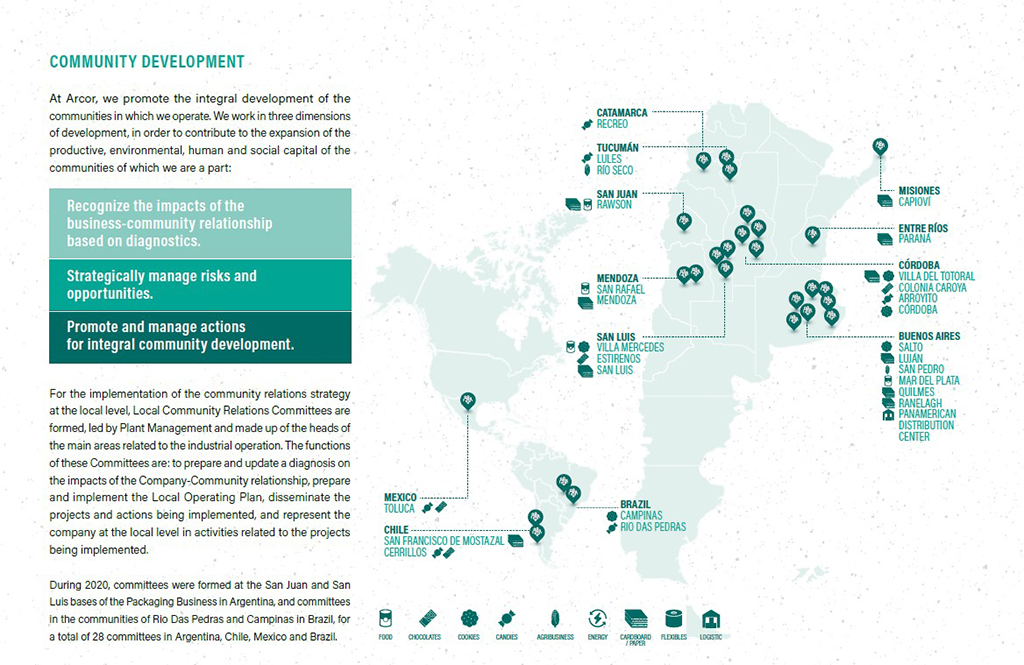Community Impact Management
At Arcor we recognize that the relationships maintained with the community should not only be intended to merely pursue a harmonious coexistence, but also to implement actions aimed at the economic, environmental and social development of their local contexts. This way, we work in the three development dimensions in order to contribute to the expansion of the productive, environmental, human, and social capital of the communities of which we are part.
For that purpose, we define our community relations practices by implementing a strategy aimed at:
- Recognizing the impacts of the Company-community relation.
- Strategically managing risks and opportunities.
- Promoting and managing comprehensive community development actions.
In this sense, we seek to contribute to the generation of wealth and the creation of job opportunities, the improvement of local infrastructure, comprehensive waste management, the promotion of eco-efficient natural resources: water, energy and materials, the generation of values, knowledge and skills for the economic and social inclusion of people, the promotion of education, public participation, the articulation of stakeholders, and the construction of alliances and networks.
Within this framework, the Local Committees, which have been gradually created since 2008, are structured to manage the relationship between the Company and the community. The Committees are actively involved in various dialog forums, including management and local development tables.
We made progress in the systematization and implementation of impact perception and matrix studies —tools developed to manage the impact of the company on the locations where we are present, and to measure and assess strengths and opportunities for improvement. To this end, throughout the year, certain guidelines are developed to help Local Committees in reaching diagnoses and defining goals, strategies, and local plans.
In addition, we integrated community impact management into the Comprehensive Management System (SGI) by formally incorporating Community Relations as a component of the strategy.








